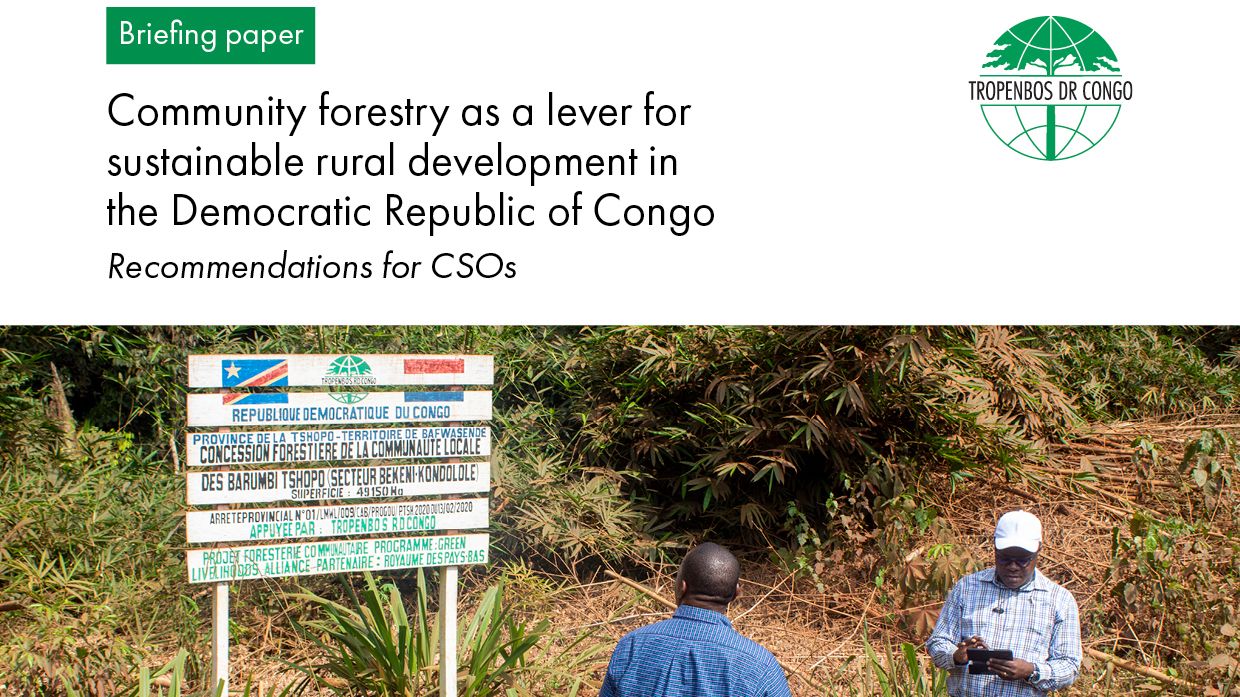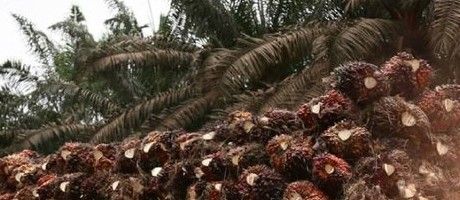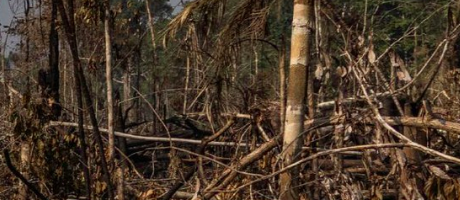
Briefing paper: Community forestry as a lever for sustainable rural development in the Democratic Republic of Congo
As part of a multi-country review of community forest rights, Tropenbos DR Congo conducted a review of the CFCL model in DR Congo. The study meant to find out the extent to which CFCLs have had the desired outcomes in terms of rural development, and to identify the main barriers, as well as the conditions for success (in terms of improvements to livelihoods, self-determination and forest conservation).

ING withdraws from complaint against the bank’s involvement in the palm oil sector
The Dutch National Contact Point (NCP) for the Organization of Economic Co-operation and Development (OECD) has published the final statement on the complaint from Friends of the Earth groups and supporters against ING bank. The complaint was supposed to deal with adverse impacts of three of the bank’s palm oil clients, ranging from human rights and labour rights violations todeforestation. ING withdrew from the complaint, leaving the communities affected by the oil palm plantations empty handed.

Dutch companies (in)directly involved in human rights violations in the Global South
Every five years, the UN Human Rights Council assesses the human rights situation in a country. This year, the Netherlands will be assessed. IUCN NL, Milieudefensie and Stand Up For Your Rights submitted a joint report to draw attention to the human rights violations taking place in the value chain of Dutch businesses. We are asking for recommendations that will require Dutch businesses to investigate potential human rights violations and damage to nature in their (international) value chain.
Header photo: Fishermen in Waza National Park, Cameroon (c) Hans de Iongh

RSPO certificate for Socfin in Sierra Leone despite blatant land conflict
The Roundtable on Sustainable Palm Oil (RSPO) certified the Socfin subsidiary in Sierra Leone in January 2022, in spite of numerous land conflicts, violence against human rights defenders and grievances on pollution and other forms of environmental harm from affected communities. This certification is next in line of a number of highly controversial certifications of the SOCFIN group in Nigeria, Cameroon and Ivory Coast. RSPO is totally biased in favour of the industry and is not fit for purpose to guarantee sustainability and respect for human rights in palm oil supply chains.

Proposal EU Due Diligence Directive: ‘a missed opportunity’
Last week, the European Commission published a legislative proposal which obligates major companies to prevent human rights violations and environmental pollution in their supply chain. Companies that fail to do so can be held accountable. This is a positive development, but also a missed opportunity: the directive only reaches 1% of all European companies.
Header photo: European Union flag © Markus Spiske for Unsplash

Philippines’ biodiversity under increased risk as open-pit mining ban is lifted
Environmental and human rights defenders fear the worst, as the Philippines lifted the ban on open-pit mining that intended to protect the country’s unique biodiversity and to prevent the contamination of watersheds since 2017.
Header photo: Protestor holding sign calling to ban open-pit mining © ATM

After 15 years of fighting a palm oil giant, farmer Hemsi finally gets his land back
The land of Hemsi from Indonesia is brutally taken by a palm oil company in Indonesia. But he didn't give up and in 2021 he finally gets part of his land back. This took 15 years of unbelievable courage, perseverance and suffering.

How the Dutch financial sector contributes to deforestation
Dutch banks, insurers and pension funds give money to companies that trade in products with a high risk of deforestation. Think of palm oil and soy. It is billions of euros. For this purpose, often and a lot is deforested in countries such as Brazil and Indonesia.

